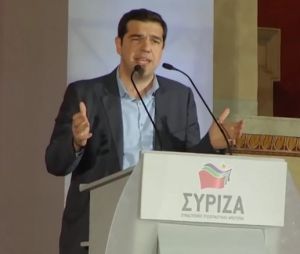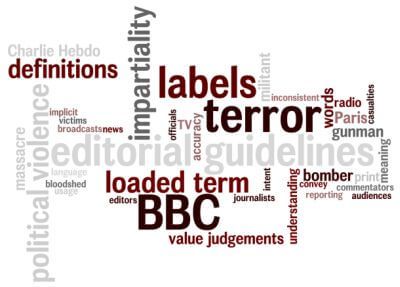Today’s Top Stories
1. Now in Israel, journalist Damian Pachter explained in Haaretz why he fled Argentina after breaking the news of prosecutor Alberto Nisman’s death.
I have no idea when I’ll be back in Argentina; I don’t even know if I want to. What I do know is that the country where I was born is not the happy place my Jewish grandparents used to tell me stories about.
After I left Argentina I found out that the government was still publishing wrong information about me on social media.

2. The election victory of Greece’s Syriza party and Alexis Tsipras is “bad news for Israel.”
The party has constantly identified itself with the Palestinian cause and its programme include a demand for abolition of Greece’s military cooperation with Israel and the support for the creation of a Palestinian state within the 1967 borders. Israel and Greece have enjoyed a strong relationship and cooperation since 2008 in several aspects of military,intelligence, economy and culture.
Several hundred Greeks demonstrated against Operation Protective Edge in a July protest organized by Syriza. The party won after campaigning on an anti-austerity platform.
3. BBC executive Tarik Kafala explained to The Independent why the Beeb won’t describe the Charlie Hebdo massacre as an act of “terror.”
Mr Kafala, whose BBC Arabic television, radio and online news services reach a weekly audience of 36 million people, told The Independent: “We try to avoid describing anyone as a terrorist or an act as being terrorist. What we try to do is to say that ‘two men killed 12 people in an attack on the office of a satirical magazine’. That’s enough, we know what that means and what it is.”
Mr Kafala said: “Terrorism is such a loaded word. The UN has been struggling for more than a decade to define the word and they can’t. It is very difficult to. We know what political violence is, we know what murder, bombings and shootings are and we describe them. That’s much more revealing, we believe, than using a word like terrorist which people will see as value-laden.”
How bad does the violence have to get for the BBC to wake up to terror?

4. New York Times Can’t Disguise its Disdain: Human rights organizations and left-wing NGOs are considered beyond criticism by media. This isn’t the case for pro-Israel NGOs. Another aspect of New York Times bias?
5. BBC Tim Willcox Investigation Moves Forward: Since we first filed a complaint to the BBC about Tim Willcox’s outrageous remark on live TV during a Paris rally, we haven’t let the issue go. Here’s the latest email we received.
Israel and the Palestinians
• AFP: Hamas wants to launch a seaport with international boat service from Gaza in two months.
The port in Gaza City is currently restricted to fishermen, whom Israel only allows to fish up to a maximum of six nautical miles from the shore.
• For the first time in five years, Hamas is allowing Israeli products into Gaza. Maan News explains why Hamas going soft on BDS:
“The war damaged the production ability of factories and the nature and quality of the product, because some raw materials are not allowed in” due to the blockade.
“We decided to allow (Israeli) products to enter so that the market is not hindered and so products are available,” al-Baz added.
• Israel is accelerating efforts to smooth out a diplomatic disagreement with New Zealand now that the Pacific island country is joining the UN Security Council. New Zealand, which currently doesn’t have an embassy in Israel, wants to have one ambassador to both Israel and the PA. More at Haaretz.
• Study: Germans have skeptical view of Israel
• Egypt extended its state of emergency in the Sinai another three months.
Mideast Matters
• If you’re trying to keep the story straight, Haaretz‘s 9 things we know for sure about Argentine prosecutor Nisman’s death will be helpful.

• Haaretz picked up on a New York Times report that the US prevented an Israeli sale of old Cobra helicopters to Nigeria.
The Nigerians wanted to use the choppers against Boko Haram insurgents; the US objected “amid concerns about Nigeria’s protection of civilians when conducting military operations.”
• Yukiya Amano, the director general of the International Atomic Energy Agency, was hardly reassuring about Iranian nuclear compliance:
As far as Iran is concerned, the Agency is able to verify the non-diversion of nuclear material declared to us by Iran under its Safeguards Agreement.
But we are not in a position to provide credible assurance about the absence of undeclared nuclear material and activities in Iran, and therefore to conclude that all nuclear material in Iran is in peaceful activities.
• Jewish leaders seek European-wide legislation outlawing anti-Semitism.
• Gee, I wonder why there’s such a breakdown of trust. . .
Only 11% of Israelis would want their children to become reporters
Commentary/Analysis
• The stalemate over Iran’s nukes and the fall of Yemen show Obama isn’t tough enough, writes Dennis Ross.
• Secret Israeli-Saudi ties likely to continue despite Abdullah’s death
• For more commentary analysis, see Ronen Bergman (Nasrallah in distress), David Schenker (Hezbollah’s limited options), and Lee Smith (Hard times for Hezbollah).
Featured image: CC BY-NC-SA xeeliz via flickr with additions by HonestReporting; Tsipras via YouTube/Wall St. Journal;
For more, see yesterday’s Israel Daily News Stream and join the IDNS on Facebook.

